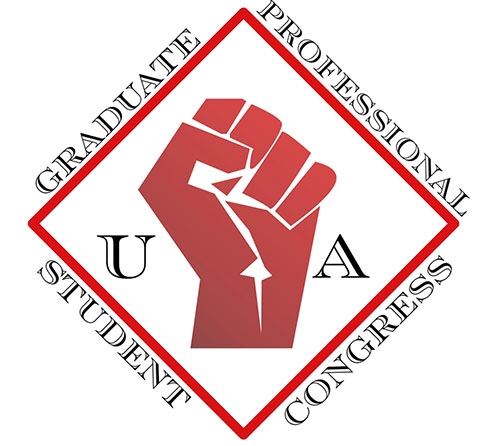The Graduate-Professional Student Congress reallocated funds originally used to support graduate student travel to conferences to support graduate and doctoral student research during the pandemic.
All university events and university-sponsored travel were suspended in March as the Coronavirus pandemic grew, opening a window of opportunity for the organization’s Research Council to utilize travel grants in a different way.
Will Teague, GPSC Research Council co-chair, said the program attracted four dozen applicants across campus. In all, 14 graduate students were selected to receive grants of up to $1,500 to support their research. The Graduate-Professional Student Congress provided $14,000 for the grants, and the Office of Research and Innovation gave $3,000.
“The majority of these students are also working on their thesis or dissertation,” said Tiffany Marcantonio, GPSC Research Council co-chair and “We were extremely thrilled to be able to support so many students who are close to finishing their degrees.”
The nearly 50 applications were organized and distributed to GPSC Research Council's 12 members for a multistage review process using a rubric modeled after that of the National Institutes of Health.
“Our motivation was primarily based on the fact that the Graduate School and International Education and the Graduate-Professional Student Congress provide travel funding for students presenting at conferences,” said James “JD” DiLoreto-Hill, graduate congress president, “However, that funding is for the purpose of travel to present at a conference and that purpose alone. Graduate students are not only required to conduct research to complete their degrees, but conducting research to submit for publication is also a requirement for almost all of us.”
Recipients include:
- Johnathan Blanchard, civil engineering
- Max Carnes-Mason, biological sciences
- Jianmin Chai, animal science
- Joshua Corbitt, chemical engineering
- Kaitlyn Fitzgerald, environmental dynamics
- Airic Hughes, history
- Callen Lichtenwalter, animal science
- Seongkyun Lim, health, human performance and recreation
- Huong Nguyen, world languages, literatures and cultures
- Alexandria Peterson, environmental dynamics
- Jesse Roberts, chemical engineering
- Amir Shariffar, engineering
- Timothy TJ Shoonover, rehabilitation, human resources and communication disorders
- Malachi Willis, health, human performance and recreation
The awardees are already engaged in a variety of diverse research that includes: How urban renewal and highway building negatively impacted African American communities in Arkansas, how centuries old cultural myths in Vietnam have survived and shaped modern regional political and religious beliefs, how individuals that have suffered from a stroke might be better protected from brain damage and how a better understanding of sexual consent may inform educators, policy makers and therapists.
The Research Grant program was an idea initially proposed by members of the council in summer 2018 in partnership with the Office of Research and Innovation.
"Graduate and professional students at U of A are an integral part of our research enterprise,” said Daniel Sui, vice chancellor for research and innovation. “The
Office of Research and Innovation is very pleased to offer this support to our graduate and professional students. The 14 proposals funded in this round reflect the breadth and depth of our graduate students’ creative work. I wish them all a successful conclusion of their projects.”
Contacts
Sarah Grace Brown, communications assistant
Office of Research and Innovation
479-575-6874,
